
views
- Biblical fasting is when a Christian abstains from a temptation (such as eating and drinking) to focus on God’s word.
- Christians fast to repent and prove their devotion to the Lord while opening their spirit to the Gospel.
- There are different levels of fasting. For instance, a regular fast is avoiding food and only drinking water, while a partial fast is avoiding a specific type of food.
What is biblical fasting?

Fasting is abstaining from something to focus more on God. In the Bible, fasting is seen as a powerful discipline that shows devotion and attention to the Lord. When someone fasts, they give up something good to gain focus. Christians traditionally abstain from foods and beverages to show that they’re dedicated to following in God’s footsteps. They use the time typically reserved to eat or drink for studying scripture, praying, or reflecting on their sins. In Matthew 6:16-18, Jesus says, “When you fast, put oil on your head and wash your face, so that it will not be obvious to others when you are fasting, but only to your Father who is in secret. And your Father, who sees in secret, will reward you.” Notice how when Jesus refers to fasting he says, “When you fast” rather than “If you fast.” While fasting isn’t a command in the Bible, Jesus does expect his followers to fast. Biblical fasting is similar to dietary fasting (such as intermittent fasting), as they both center around control and overcoming indulgence; however, unlike dietary fasting, biblical fasting focuses on healing a person’s spiritual connection with God rather than improving physical health.
Why do Christians fast?

Christians fast to repent and prove their devotion to the Lord. When a Christian fasts, they’re opening their spirit to God. Perhaps they’ve sinned or have strayed away from the Lord’s path. Either way, fasting is a humble way to express forgiveness and loyalty to the almighty, as King David said, “I humbled myself with fasting” (Psalm 35:13). Fasting can also help open the soul and make you more vulnerable to the Holy Spirit, as the time spent away from temptations leads one closer to the Lord’s word. While fasting, Christians take the time once devoted to eating or other activities to pray and study the Gospel. Many Christians argue that they feel refreshed and revitalized after fasting, claiming they’re emotionally and physically stronger.
Types of Fasting
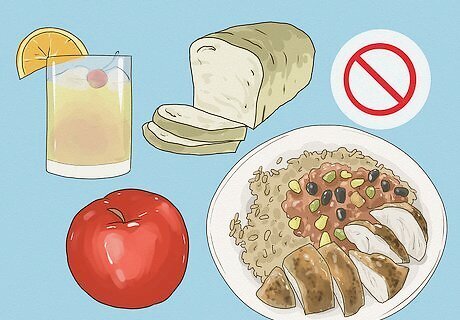
Regular fast Also known as a complete fast, a regular fast is when you avoid all food and drink except water. This is the most traditional style of fasting.
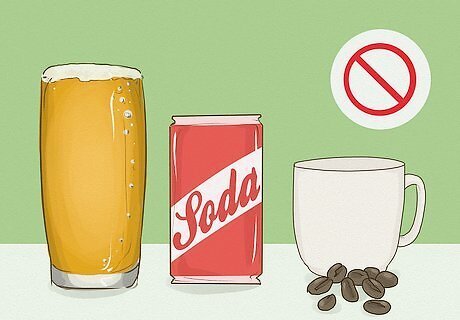
Partial fast A partial fast is when you abstain from a certain type of food. A popular type of this fast would be a liquid fast, where you remove soda, alcohol, or caffeine from your diet completely. For example, Daniel did a partial fast as noted in Daniel 10:3: “I had eaten no rich food, no meat or wine had entered my mouth, and I had not anointed myself at all, for the full three weeks.”

Liquid fast A liquid fast is when you abstain from all food and only consume liquids. Smoothies, broths, fresh juices, and soups are typically allowed (along with water, of course). The main rule is to avoid sugary beverages like cocktail juices and fancy coffees, as these can spike your blood sugar.
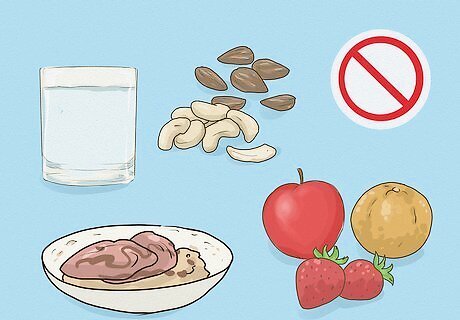
Absolute fast An absolute fast is when you avoid food and drink of any kind. This is the most dangerous type of fasting and should only be done for a short period of time. Religious fasts typically last between 14 and 40 hours, and experts recommend getting an a-okay from a doctor before proceeding.

Supernatural fast A supernatural fast is when the Holy Spirit intervenes and helps you abstain from food and drink for an extended amount of time. Accounts of supernatural fasts are extremely rare and are typically only seen in scripture. For instance, Moses fasted for 40 days: “When I went up the mountain to receive the stone tablets, the tablets of the covenant that the Lord made with you, I remained on the mountain forty days and forty nights; I neither ate bread nor drank water” (Deuteronomy 9:8).
How to Fast

Pray and meditate on the Gospel before you fast. Fasting is a big commitment and shouldn’t be a decision you make lightly. Before you start fasting for the Lord, make a conscious effort to reflect on your sins, study scripture, and pray. Asking God for guidance can help you recognize how you want to fast and acknowledge what He’s seeking within you.

Plan what you’ll do while you fast. When you fast as a Christian, you take the time normally spent on eating to satisfy the Lord and open your spirit. Ask yourself, “What positive activity can I take on that will bring me closer to God’s message?” You could use the time to pray, read the Bible, journal, or meditate.
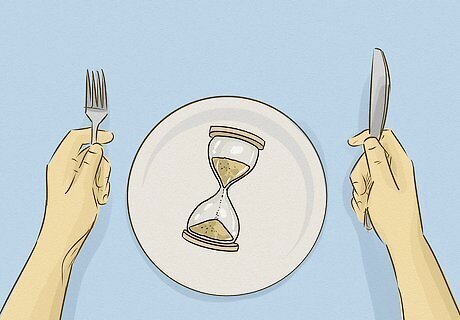
Decide how long you’ll fast. Not every fast is the same, and that’s okay! Do what’s best for you, your body, and your spiritual journey. If this is your first time fasting, consider only fasting for 1 meal a day. If you’re a seasoned pro, aim to fast for 2 days. Deciding the length of your fast beforehand can help you map out when the best time to fast will be. Typically, fasting is done daily, weekly, or annually.

Start your fast. When you feel motivated to do so, start your fast. Avoid food and any other temptations you’ve decided to abstain from. The first few hours or day can be challenging, but do your best to stick to it! Remember, God has your back no matter what.
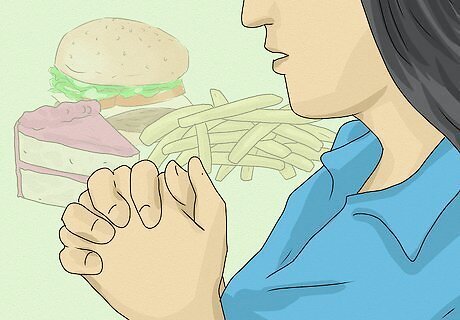
Pray during times of weakness. If you feel yourself reaching toward a snack or temptation during your fast, reach for the Lord instead. Pull out your Bible or fold your hands together. Now is the time to pray and ask for strength. Your prayer might sound like, “Dear God, please give me the energy to complete this fast” or “Dear Lord, help me find the strength to abstain from temptations.”

Break your fast gently. When you reach the end of your fast, avoid eating a lot of food immediately. Instead, gradually get back into eating as you normally would. Start with a light snack or a small, healthy meal. Then, reintroduce heavier foods and meals. Soups and smoothies are a great starting point when breaking a fast, as these foods are easy on digestion and won’t be heavy in your empty stomach. Try a plain baked potato without toppings as one of your first meals, as the starches can help settle your hunger without upsetting your stomach.
Ways to Fast Safely
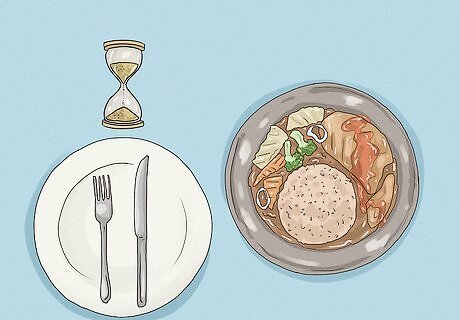
Fast until a set time day or skip a regular meal. You don’t necessarily have to go a full day without eating or drinking to properly fast for God. Ease yourself into abstinence by sacrificing 1 meal or doing an intermittent fast where you only eat and drink for set times each day.

Opt to abstain from a type of food or beverage. If you have health concerns or diet restrictions that make traditional fasting more difficult, consider abstaining from a specific food or drink. Excluding sweets, alcohol, or caffeine from your diet is just as much of a sacrifice and will help you focus more on God. For example, if you’ve been skipping evening church service to drink with friends, fast from alcohol to help you get back on track. If you’re an excessive cookie eater, try cutting cookies from your diet entirely and replacing snack time with Bible study or prayer.

Choose a non-food-related item to fast with. If skipping meals and only drinking water isn’t feasible for you, no worries! Try fasting from something else that’s equally important in your life to prove your devotion. This could be a habit or activity. Basically, if something pulls you away from the Lord, it’s something you can fast. For instance, if you come home from school and watch TV right away, consider giving up your after-school TV time to study or read the Bible. Delete social media apps from your phone to focus more on the Lord’s influence.

Avoid doing a complete fast for more than 3 days. Never avoid drinking water or eating food for more than 3 consecutive days. The body needs subsistence to function, and the last thing the Lord wants is for you to suffer. So, aim to fast for a maximum of 3 days, start back on a regular diet, and then consider fasting again.
What if you fail at fasting?

If you break your fast, don’t sweat it! Everyone makes mistakes, and God just happens to be the most forgiving. It takes time to build the discipline to fast, so try, try, and try again. Don’t be discouraged if you fail once or twice—keep trying until you complete your goal!



















Comments
0 comment